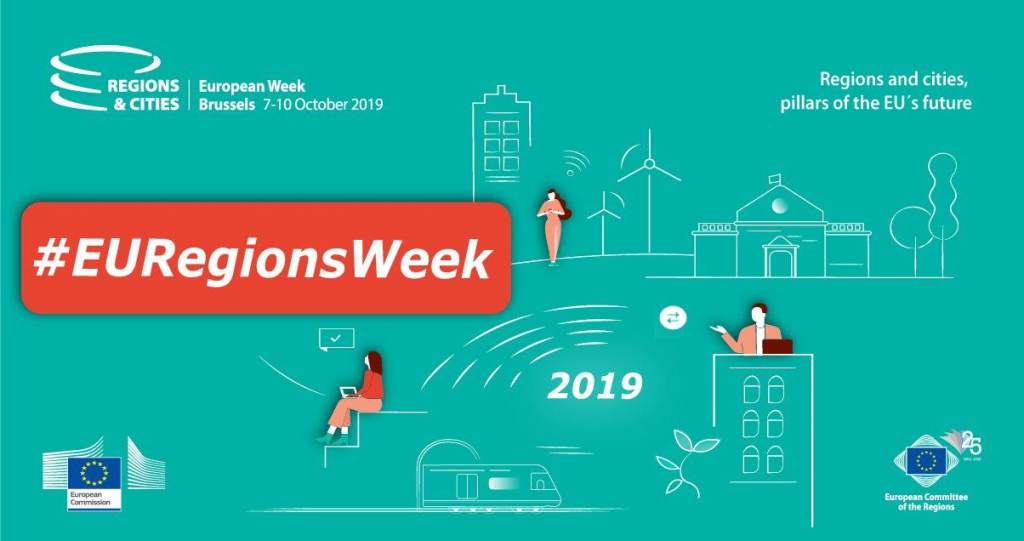 Share this!
Share this!From 7 to 10 October, AER attended the annual European Week of Regions and Cities organised by the European Committee of the Regions and the European Commission’s Directorate-General for Regional and Urban Policy (DG REGIO). The purpose of this four-day event is to bring local, regional, national and EU representatives interested in regional and urban policy from all over Europe together and give them the opportunity to exchange good practices and share their experiences.
Every year, the different workshops follow a series of red threads related to the current European situation. This year the three main topics were: “A Greener Europe”, “A Europe Closer to Citizens” and “The Future of the EU and the roles of the Regions and Cities”.
In this context, AER organised a side event entitled “REGIONerating Europe”, participants had the chance to get to grips with the main challenges facing Europe and to examine different strategies implemented at the European, national and regional level to regenerate the European project and bridge the gap between citizens and the EU institutions.
As the largest network of regions in wider Europe, AER had the opportunity to learn more about how regions designed their strategies on specific topics. The different workshops covered a range of issues of interest to AER, including localisation of SDGs, cohesion policy and youth empowerment.
SDGs go Local
AER is committed to localising the UN Sustainable Development Goals by promoting good practices among regions. The different workshops addressing this urgency proved the regions’ willingness to mobilise citizens and take action to address these challenges. Although across Europe regions face different realities, the common idea is to guarantee an inclusive, resilient and sustainable future to all citizens. The first thing needed is to increase awareness among citizens. Secondly, it is crucial to give space to the monitoring process: in order to develop more effective strategies, review processes have the same importance as the implementation itself. SDGs’ localisation is a complex issue, but regions demonstrated that through collective action improvements can be achieved.
Stronger Synergies for Cohesion Policy
Cohesion policy is one of the major EU tools to enable regions to implement the 2030 Agenda, but how we can bring citizens closer to Europe and vice versa? In line with AER priorities & its ongoing project Together For Cohesion, workshops on cohesion policy highlighted the advantage of supporting local and regional governments to develop and deliver better policy through experience sharing and cooperation. Citizens frequently feel distant from the European context, therefore, throughout some workshops, different organisations presented communication campaigns on cohesion policy. The aim is to bring citizens closer to EU. As this is a priority for AER, EU regions week provided an excellent opportunity to see how similar projects can be promoted in different ways across Europe.
Stay Updated for YOUth
AER has constantly supported youth engagement at the European level, consequently, the European Week of Regions and Cities provided the opportunity to better understand the different strategies implemented by regions on this issue. As mentioned previously, there are various realities in Europe and when it comes to youth it is even harder to find common definitions, but what facilitates countries’ cooperation are their common objectives: improving youth participation, mobility and work. Focusing on the latter, youth unemployment is one of the main concerns for young generations, youth-led organisations and local governments. The only way to improve the situation is to involve them in this process, youth work is not static therefore all the stakeholders have to stay updated.
All the topics mentioned above are high up on AER agenda, therefore the European Week of Regions and Cities was a good opportunity to learn more about practical actions as regards localisation of SDGs, cohesion policy, youth empowerment and much more.
At this point, jointly action and common strategies are crucial, for this reason, AER wants to make sure to promote this exchange of good practices and achieve together with regions our common goals.
Photo credits: European Commission
